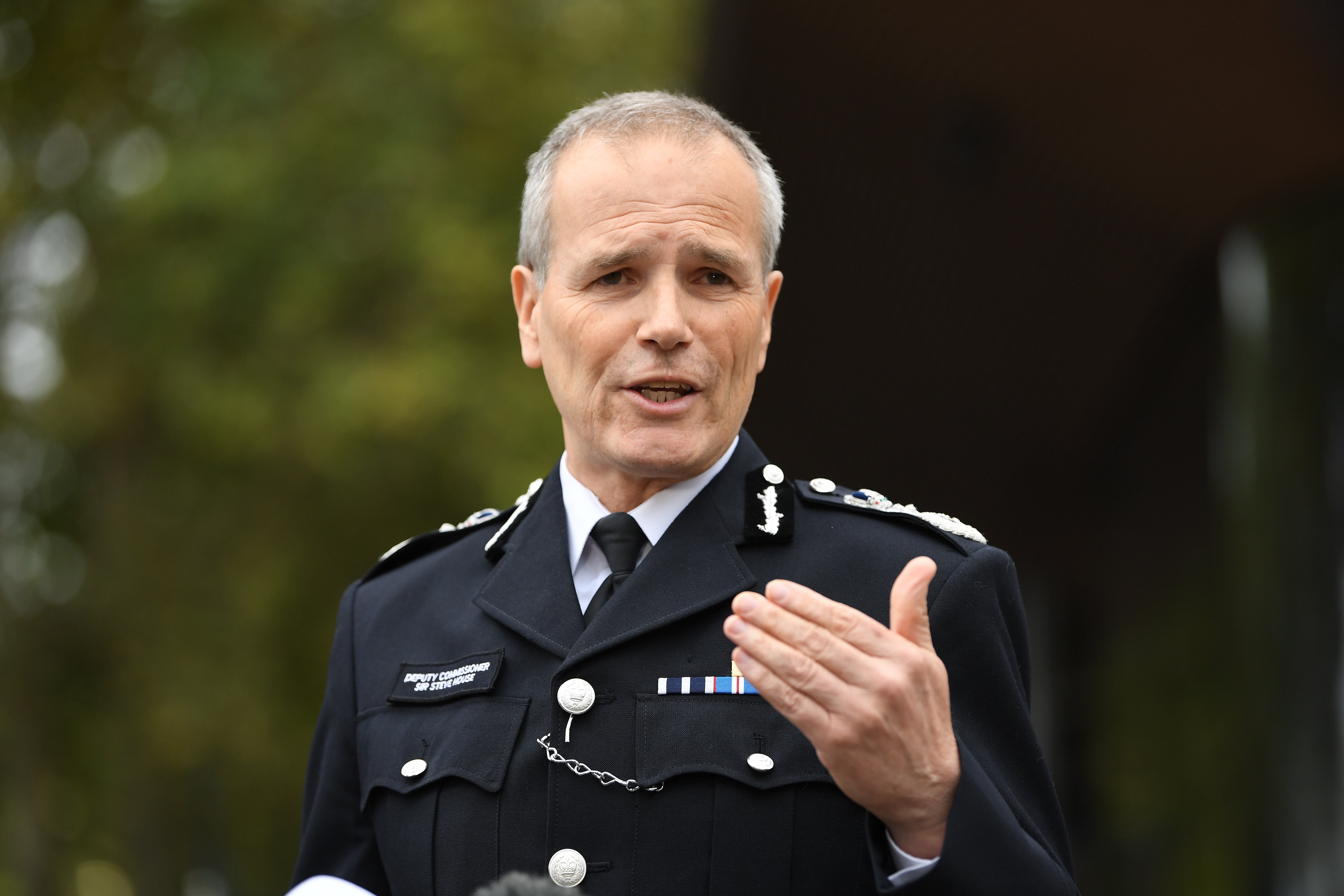Problems in Metropolitan Police ‘not a few bad apples’, chief admits
Acting Commissioner Sir Stephen House told MPs efforts are under way to root out unacceptable behaviour ‘as fast as possible’.

Your support helps us to tell the story
From reproductive rights to climate change to Big Tech, The Independent is on the ground when the story is developing. Whether it's investigating the financials of Elon Musk's pro-Trump PAC or producing our latest documentary, 'The A Word', which shines a light on the American women fighting for reproductive rights, we know how important it is to parse out the facts from the messaging.
At such a critical moment in US history, we need reporters on the ground. Your donation allows us to keep sending journalists to speak to both sides of the story.
The Independent is trusted by Americans across the entire political spectrum. And unlike many other quality news outlets, we choose not to lock Americans out of our reporting and analysis with paywalls. We believe quality journalism should be available to everyone, paid for by those who can afford it.
Your support makes all the difference.Acting Metropolitan Police Commissioner Sir Stephen House has admitted that cultural problems in the force are “not a few bad apples”.
Giving evidence to the Home Affairs Select Committee, Sir Stephen, who is temporarily leading Britain’s largest police force, said there are efforts to root out unacceptable behaviour “as fast as possible”.
The Met has faced a series of damaging scandals, including the murder of Sarah Everard by serving officer Wayne Couzens, offensive messages exchanged by a team at Charing Cross, and the strip-search of a teenage girl at school while she was menstruating.
Sir Stephen said: “There is a significant campaign within the organisation to deal with this completely unacceptable behaviour, to root it out and to exit those people who are exhibiting that behaviour from the organisation as fast as possible and in the right way.”
Asked if it is “just a few people”, he replied: “People have talked about a few bad apples, quite clearly that’s not the situation at all, it’s not a few bad apples.
“You can’t simply say that Wayne Couzens and a couple of other people have done something wrong – that’s been the spearhead of the problem, I would suggest, but there is a wider issue within the organisation which we acknowledge and we are dealing with.”
Committee chairwoman Dame Diana Johnson suggested the public see Met officers as like TV characters Jack Regan from the Sweeney or Gene Hunt from Life On Mars, “rather than a modern professional police officer”.
Sir Stephen is temporarily leading the Met until a permanent replacement is appointed in the summer, after his predecessor, Dame Cressida Dick, quit her job amid a face-off with London Mayor Sadiq Khan.
He told the committee he is “delighted” that former Chief Inspector of Constabulary Sir Tom Winsor is leading a review of whether due process was followed over her departure, and said he already been in touch.
Sir Stephen, who called on the Home Office to carry out the review, said: “I don’t think the process was followed properly in this case.”
Police forces in England and Wales are trying to recruit 20,000 officers by next year to replace jobs cut during austerity measures.
Sir Stephen said he is now “less confident” that the Met will meet its targets, with the force needing to attract 40,000 applicants in the next year to replace officers who leave as well as attracting 1,800 new starters.
He said: “We need to recruit just over 4,000 officers in the next 12 months.
“That means we need around about 40,000 applications in the next 12 months because we take roughly one in 10 of the people who apply to us.”
A strategic review of policing last month suggested that officers should have to hold licences that would be renewed every five years.
Sir Stephen said he would “not be opposed” to a scheme similar to that used for doctors.
“Every now and again, checking that somebody is still up to snuff, doing things in the way they should do, is aware of recent legal developments because the law changes all the time, is not a bad thing to do,” he said.
“We would certainly expect doctors to know what the recent developments are, what medication et cetera, what treatments, we should expect the same of police officers, and there is constant change.”
But Assistant Commissioner Louisa Rolfe, who also gave evidence on Wednesday, stressed that it should not “become a bureaucratic exercise in and of itself”.